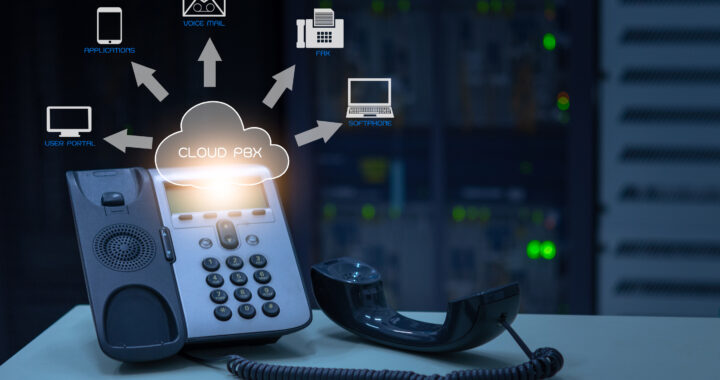As we return to work after sleeping off our turkey hangovers, we should take the time to reflect on what we’re thankful for in our workplaces, too. Perhaps it’s simply having a job, the people you work with, or even the equipment you use daily. Some of that equipment may have been there a long time, which is a budgetary blessing! But even as you feel grateful for its longevity, you can still reflect on whether it’s time to replace it, perhaps with a cloud phone service.
Cloud phone service has come a long way since its inception. They’re not the new kid on the block anymore. Still, some business owners have legitimate concerns about switching. Here are some of the top concerns we hear about when people consider changing their phone system to a new cloud phone service.
We’ll let you know which are legitimate, how to deal with them, and when it’s time to make the switch.
Losing It
One of business owners’ main concerns about upgrading to the cloud is all of the unknowns. Let’s face it. Change is scary, especially when it involves your livelihood! So whether you’re looking at venturing into a new market or changing the way you operate internally, there’s a lot to learn and a lot to risk.
But you can’t let fear of change paralyze you from making progress.
Of all the reasons not to upgrade to the cloud, this is the most relatable and least legitimate. Here’s the deal: eventually, you will have to replace your equipment.
Though RCI sells some of the most dependable telephone systems on the market, nothing lasts forever. And it’s always better to replace something in a controlled way before you need it than wait until an emergency forces the issue!
You and your employees will need to learn some new equipment and phone functions, but RCI technicians will fully train you so you understand how to use your new features to their fullest potential!
Some business owners also worry about losing information or even their old numbers. The good news is that RCI will be able to program your new business cloud telephone system to work similarly to your old one. And except in very limited circumstances, you can keep your phone number when you switch to a new carrier or cloud phone service.
Expense
Another fear people have of the cloud is the expense. Luckily, this one is usually unfounded. Typically, business owners save money when they switch to cloud telephone service. The upfront cost is generally low because, unlike with traditional or even VOIP telephone systems, you only buy (or rent) phones, not a system.
Monthly bills can often be similar to a phone bill or a phone bill with a maintenance plan for small businesses. For businesses with dozens or hundreds of phones, the expense of switching to cloud phone service may be more than getting a new VOIP system, at least in the long run. So larger businesses should weigh those factors.
Sometimes, we can further allay costs with a trade-in credit, depending on what specials our manufacturers are running at the time.
Stability
I’ve asked the question many times: When was the last time your business’s power went out? For most of us, especially in urban areas, it’s been a while. But when was the last time your internet went down? That’s typically a lot closer in memory.
The instability of the internet is one of the top concerns that business owners give for hesitating to upgrade to business cloud phone service. And it’s a valid concern.
Telephone calls used to go over phone lines, which typically only went down if they were physically damaged. Internet is a lot more, let’s say, wonky.
Even when it doesn’t go down, dips in speed can cause weird audio issues within a conversation, like delays, clicks, and echoes.
Stability Solutions
Luckily, though stability is one of the most real concerns to consider, some excellent solutions are available.
One of the best ways to cover yourself if you have an unstable connection is to have a POTS line as a backup. That way, if your internet goes down, you still receive calls. You may need multiple backup lines depending on the number of trunks (not to mention calls) you have coming in.
The systems we sell also have the option of a failover number where calls automatically forward if the business cloud telephone system detects an internet disruption.
Security
Finally, perhaps the most significant concern business owners have when switching to cloud phone service is security.
It used to be that if you wanted to intercept a telephone conversation, you would need to place a physical device on the phone or phone system. That meant that tapping your calls was only feasible for governmental or highly organized criminal organizations, and you were rarely a target unless you were one of the two (or a huge corporation) yourself.
Times have changed.
Today, talented but unscrupulous hackers can hack into any internet-connected device from the comfort of their homes, making intercepted calls or hi-jacked systems a concern for everyone.
Security Solutions
Unfortunately, there’s no foolproof way to protect yourself one hundred percent from bad actors. But there are some best practices to lessen your risks with cloud phone systems.
The systems RCI sells have built-in security features that, along with using good security hygiene on the user end, should minimize the possibility of a security breach. Security hygiene includes:
- Following password guidelines.
- Keeping those passwords a secret.
- Updating them at regular intervals.
This is the one solution issue you can’t fully protect yourself from, so some companies still prefer digital equipment. But for most, security is not such a significant concern that it outweighs the benefits of a business cloud telephone system.
Thinking of Switching to a Business Cloud Phone Service?
If you have other concerns about making the switch to cloud phone service, call us or leave a comment below. RCI would love to help address your concerns and help you get the right system for you.

